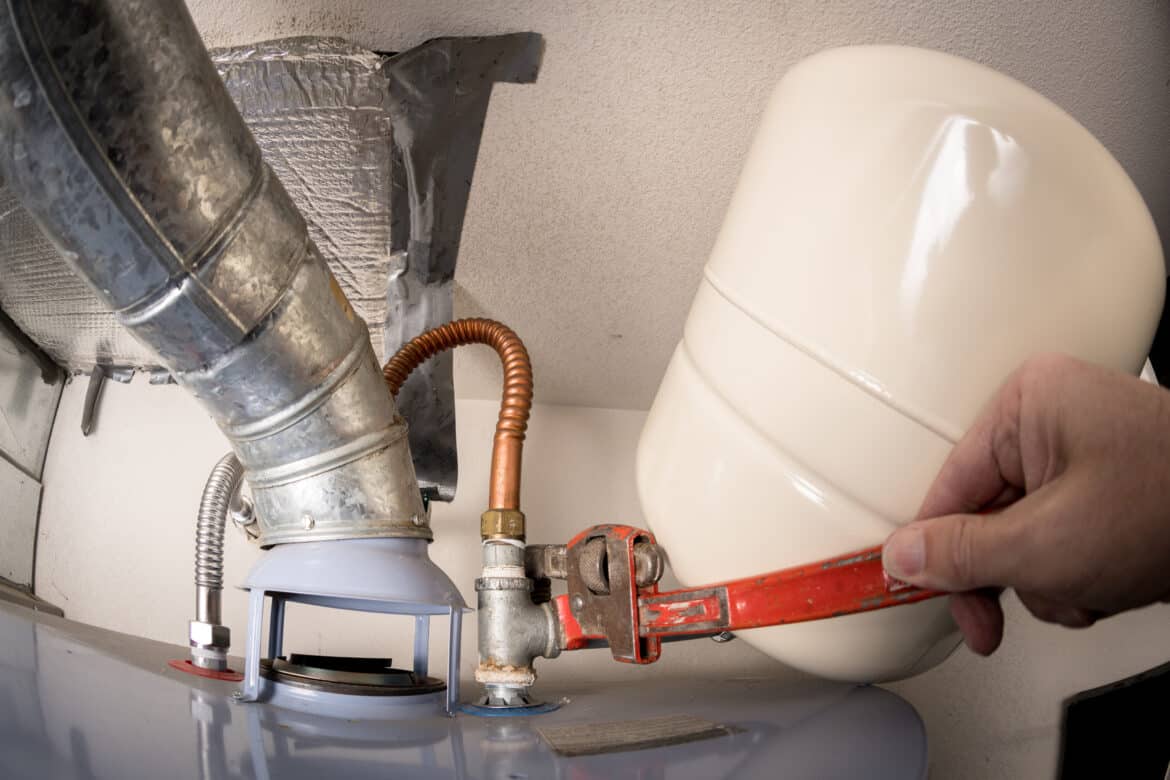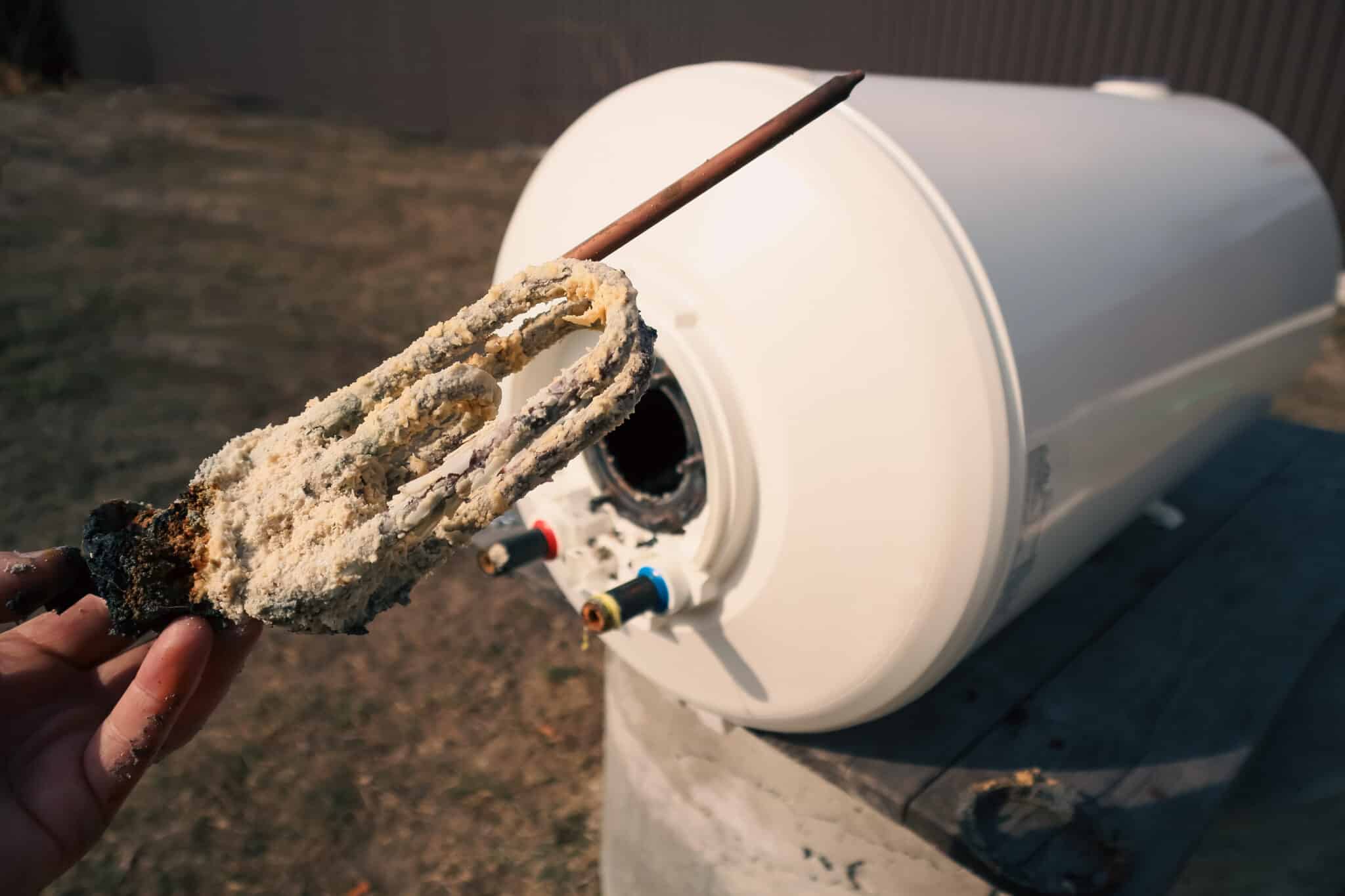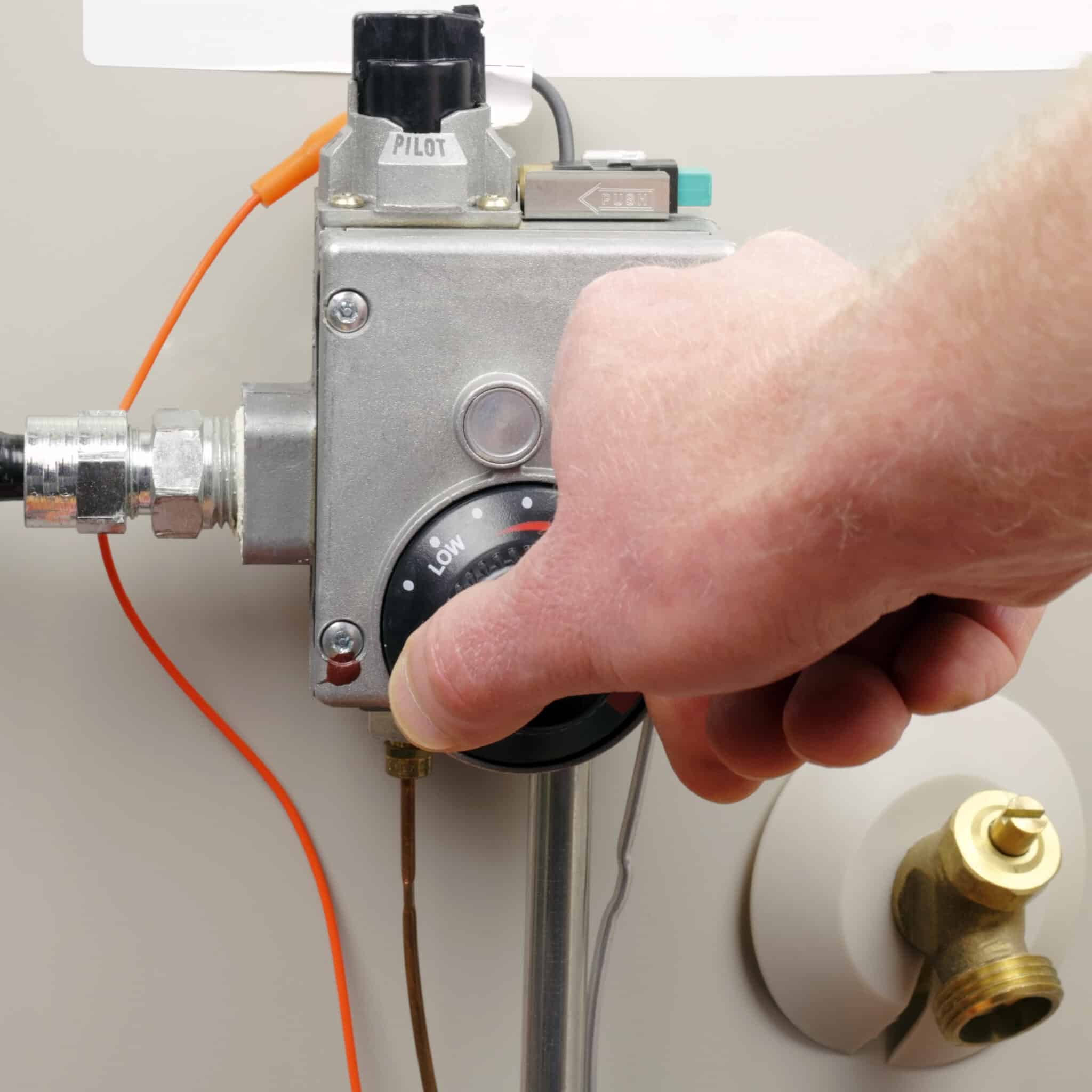
Common Water Heater Failures and Fixes
Could your water heater be warning you before it fails? Unusual sounds, fluctuating temperatures, or unexpected leaks often hint at hidden problems. Ignoring these subtle signs can lead to sudden breakdowns and expensive repairs. Understanding common water heater failures helps homeowners act early, ensuring a steady supply of hot water when it is needed most.

No Hot Water? Check These Common Causes
Losing hot water unexpectedly can throw off your entire day. If your water heater is not working, several common issues could be to blame. Electrical failures, gas supply disruptions, or internal damage can cause heating problems. Identifying these warning signs early helps prevent costly repairs and ensures your home has a steady, reliable hot water supply.
-
Tripped Circuit Breaker or Faulty Heating Element
For electric water heaters, a tripped circuit breaker or a malfunctioning heating element can prevent water from heating. First, check the breaker panel and reset the switch if necessary. If the breaker trips repeatedly, an electrical issue may require professional repair. A burned-out heating element can also stop water from warming up and may need to be replaced.
-
Pilot Light or Gas Supply Issues
Gas-powered water heaters need a steady gas supply and a properly functioning pilot light. If the pilot light goes out, the burner won’t ignite, leaving you without hot water. A faulty thermocouple or clogged burner could also be the cause. Checking for gas flow issues and relighting the pilot may help, but persistent problems require expert inspection.
-
Sediment Buildup Reducing Efficiency
Minerals from hard water accumulate at the bottom of the tank, creating an insulating layer that reduces heating efficiency. This buildup forces the water heater to work harder, leading to overheating or failure. Regular flushing removes sediment and improves performance, preventing long-term damage and ensuring reliable hot water. Ignoring this issue may shorten the system’s lifespan.
-
Aging or Malfunctioning Unit
If your water heater is over 10 years old, frequent repairs, rising energy bills, and inconsistent temperatures indicate it may be failing. Older units lose efficiency and become more expensive to maintain. A professional plumber can assess whether a repair or replacement is the best solution, ensuring consistent hot water for your home.
Strange Noises Coming from the Water Heater
A water heater should operate quietly, so unusual sounds can be a sign of trouble. If you hear rumbling, popping, or banging noises, your system may be struggling to function properly. Ignoring these sounds can lead to inefficiency, damage, or even system failure. Identifying the cause early can prevent costly repairs and keep your hot water flowing.
-
Sediment Buildup in the Tank
One of the most common causes of strange noises is sediment buildup. Over time, minerals from hard water settle at the bottom of the tank, trapping water beneath them. When the water heater runs, the water overheats and creates steam bubbles that burst, producing popping or rumbling sounds. Flushing the tank regularly removes sediment and restores efficiency.
-
Expanding and Contracting Pipes
If you hear a knocking or banging noise, your pipes could be expanding and contracting as hot water flows through them. This phenomenon, known as “water hammer,” occurs when sudden pressure changes cause the pipes to shift. Installing a water hammer arrestor or securing loose pipes can minimize the noise and protect your plumbing system.
-
Failing Heating Element
Electric water heaters use heating elements that can wear out over time. A damaged or loose element may produce a humming or sizzling noise. If the element is failing, it may need to be tightened or replaced to restore proper operation. A professional plumber can diagnose and fix the issue before it worsens.
-
Excessive Pressure Inside the Tank
A hissing or whistling sound may indicate high pressure inside the water heater. If the temperature or pressure relief (TPR) valve is releasing steam or water, it is doing its job to prevent excessive pressure buildup. However, if this occurs frequently, it could signal a pressure regulation issue that needs professional attention to avoid potential leaks or tank damage.
Strange noises from your water heater should never be ignored. Addressing them early can prevent major breakdowns and extend the life of your system. If unusual sounds persist, scheduling an inspection with a professional plumber can help keep your water heater running smoothly.
Leaking Water Heater? Act Fast!
Leaks from a water heater can quickly turn into major problems, causing water damage, mold growth, and costly repairs. Even a small drip indicates something is wrong, and ignoring it can lead to system failure or flooding. Identifying the cause early can help prevent further damage and keep your hot water supply running smoothly.
-
Loose or Faulty Connections
Over time, inlet and outlet pipes can loosen due to temperature changes and water pressure fluctuations. If moisture appears around the fittings, tightening them may stop the leak. However, persistent dripping often signals worn-out connections that require professional replacement to prevent further issues.
-
Faulty Temperature & Pressure Relief Valve
The temperature and pressure relief (TPR) valve is a safety feature that prevents excessive pressure buildup in the water heater. A leaking valve may be clogged, malfunctioning, or dealing with high internal pressure. Replacing a faulty TPR valve is crucial to prevent dangerous system failures.
-
Tank Corrosion and Internal Damage
A leak from the bottom of the water heater usually means internal corrosion. Sediment buildup weakens the tank, leading to rust and eventual failure. Unfortunately, a corroded tank cannot be repaired and must be replaced to avoid flooding.
Take Immediate Action
Ignoring a leaking water heater can lead to severe damage. Turning off the unit and contacting a professional plumber immediately can help prevent costly repairs.
Rusty or Discolored Water Coming from the Tap
Noticing rusty or discolored water from your tap can be concerning. If it only happens with hot water, your water heater may be the problem. Corrosion, a failing anode rod, or sediment buildup can cause discoloration. Ignoring this issue can lead to leaks, system failure, or even unsafe water quality. Addressing it early helps prevent costly damage and ensures clean, clear water.
-
Corrosion Inside the Tank
With continued use, the metal tank in a water heater can corrode, especially if the protective anode rod has deteriorated. Rust inside the tank often leads to reddish or brownish water. If corrosion spreads too far, replacing the unit may be the only option. Routine inspections help detect early signs of rust before major damage occurs.
-
Failing Anode Rod
The anode rod is designed to prevent the water heater from rusting by attracting corrosive elements. When it wears out, the tank becomes vulnerable to rust and leaks. Replacing the anode rod when discoloration first appears can extend the system’s lifespan and maintain water quality.
-
Sediment Buildup Causing Discoloration
Hard water minerals settle at the bottom of the water heater, creating sediment that can mix with the water. Flushing the tank regularly removes buildup, preventing rusty or cloudy water. Neglecting this maintenance can cause efficiency issues and long-term damage.
Take Action Before It Gets Worse
Rusty water from your water heater is a warning sign that should never be ignored. If the problem persists, calling a professional plumber ensures safe, clean water and a properly functioning system.
Pilot Light Keeps Going Out in Gas Water Heaters
Pilot light issues in a gas water heater can leave you without hot water when you need it most. If the flame keeps going out, it often signals a deeper problem. Ignoring the issue can lead to inefficiency, system failure, or even safety hazards. Identifying the cause early helps prevent costly repairs and ensures reliable performance.
Malfunctioning or Misaligned Thermocouple
The thermocouple is a safety sensor that shuts off gas if the pilot light goes out. Dirt, misalignment, or wear can cause it to malfunction, cutting off the gas supply unnecessarily. Cleaning or replacing the thermocouple restores proper function and prevents frequent shutdowns.
Air Drafts Extinguishing the Flame
Unexpected drafts can blow out the pilot light, disrupting the water heater’s operation. Open windows, ventilation issues, or strong airflow from nearby appliances may be responsible. Blocking drafts and ensuring proper ventilation can help maintain a steady flame.
Gas Flow Issues or Blockages
A weak or inconsistent pilot light may indicate gas supply issues. Low gas pressure, a clogged gas line, or a faulty control valve can prevent proper ignition. Checking for adequate gas flow helps resolve the problem.
Clogged Pilot Orifice Restricting Flame
Over time, dust and debris can block the pilot orifice, reducing gas flow and weakening the flame. A flickering or small pilot light often signals a blockage. Cleaning the orifice ensures consistent ignition and reliable water heater operation.
Address the Problem Before It Worsens
Pilot light issues won’t fix themselves. If troubleshooting does not work, a professional plumber can diagnose and repair your water heater, restoring safe and efficient performance.

Water Temperature Fluctuations
Unstable water temperatures can be frustrating, especially when your shower suddenly turns icy cold or scalding hot. If your water heater struggles to maintain consistent heat, there’s likely an underlying issue. Ignoring these fluctuations can lead to higher energy bills, reduced efficiency, and long-term system damage. Identifying the cause early helps restore reliable hot water and prevents costly repairs.
-
Faulty or Misconfigured Thermostat
The thermostat regulates the water heater’s temperature, but if it is malfunctioning or set incorrectly, temperature swings can occur. Adjusting the settings may help, but a faulty thermostat often requires replacement to restore stability.
-
Sediment Buildup Disrupting Heat Transfer
Minerals from hard water settle at the bottom of the water heater, forming a layer of sediment that disrupts heat distribution. Regular flushing removes buildup, improving efficiency and ensuring consistent water temperature.
-
Failing Heating Element or Burner
Electric water heaters rely on heating elements, while gas models use burners. When these components wear out, they cause temperature instability. A professional inspection can determine if repairs or replacements are necessary.
-
Plumbing Issues Allowing Cold Water to Mix
Incorrect plumbing connections can allow cold water to mix with hot, creating unpredictable temperature changes. A plumber can identify and fix cross-connections, ensuring steady hot water flow.
Restore Reliable Hot Water Today
Fluctuating temperatures indicate potential water heater issues. If troubleshooting does not work, a professional inspection ensures long-term reliability and efficiency.
Water Smells Bad? Here’s Why
Foul-smelling water can make everyday activities unpleasant, from washing dishes to taking a shower. If the odor comes from your hot water, your water heater is likely the source. Bacteria growth, a deteriorating anode rod, or sediment buildup can create unpleasant smells. Ignoring these issues may lead to water contamination or system damage. Identifying the cause early ensures clean, safe water.
-
Bacteria Growth Producing a Rotten Egg Smell
When warm water sits in the water heater for long periods, bacteria can multiply, creating a sulfur-like odor. This problem is common in homes with well water. Flushing the tank and disinfecting it with hydrogen peroxide can eliminate bacteria and restore fresh-smelling water.
-
Failing Anode Rod Causing Odor
The anode rod prevents rust inside the water heater, but when it deteriorates, it can react with sulfur in the water, creating bad smells. Replacing the anode rod can eliminate odors and extend the system’s lifespan.
-
Sediment Buildup Leading to Smelly Water
Minerals and debris accumulate at the bottom of the water heater, creating a breeding ground for bacteria. Regular flushing removes sediment, preventing odors and improving water quality.
-
Contaminated Water Supply
If both hot and cold water smells bad, the issue may be with your water source. A professional test can determine if filtration is needed.
Get Clean, Fresh Water Today
Bad-smelling water signals potential water heater issues. If simple fixes do not work, a professional plumber can diagnose the problem and restore clean, odor-free water.
When to Call a Professional for Water Heater Repairs
A malfunctioning water heater can disrupt your routine, leaving you with cold showers and unreliable hot water. Ignoring small issues often leads to costly repairs, water damage, or total system failure. Calling a professional early can prevent bigger problems and keep your home comfortable.
If your water heater takes too long to heat water or produces inconsistent temperatures, a faulty thermostat, heating element, or burner may be the cause. Banging or popping noises often indicate sediment buildup, reducing efficiency and increasing wear on the system. A professional can flush the tank or replace worn components to restore performance.
Leaks around the water heater or rust-colored water from faucets could signal internal corrosion. Left untreated, this can lead to major water damage. If your pilot light won’t stay lit or the unit frequently trips the breaker, gas or electrical issues may require expert attention.
Do not wait for a complete breakdown. bluefrog Plumbing + Drain of North Dallas offers expert water heater repairs in Irving, Frisco, and Plano, TX. Contact us today for fast, reliable service!
Don’t Let Water Heater Problems Disrupt Your Home
Reliable hot water is essential for daily comfort, and when your water heater starts acting up, it can cause major inconveniences. Ignoring small issues may lead to costly repairs, water damage, or complete system failure. Strange noises, fluctuating temperatures, or leaks often signal problems that need professional attention. Addressing these concerns early helps extend the lifespan of your unit and ensures a steady hot water supply.
Regular maintenance improves efficiency and prevents unexpected breakdowns. Flushing the tank, checking the thermostat, and inspecting key components keep your water heater running smoothly. If your system struggles to provide enough hot water or shows signs of wear, a professional plumber can diagnose the issue and recommend the best solution.
Delaying repairs can increase energy bills and lead to expensive damage. Whether your unit needs servicing or a full replacement, expert help is available. bluefrog Plumbing + Drain of North Dallas provides reliable water heater repair and maintenance in Irving, Frisco, and Plano, TX. Contact us today for fast, professional service and long-lasting solutions!
FAQS
-
Why is my water heater not producing hot water?
A water heater that is not heating properly may have a faulty thermostat, a broken heating element, or a failed gas burner. In electric models, a tripped circuit breaker can also be the cause. A professional plumber can diagnose the problem and restore hot water quickly.
-
What causes my water heater to make strange noises?
Banging, popping, or rumbling sounds usually indicate sediment buildup inside the water heater. Minerals from hard water settle at the bottom of the tank, trapping air bubbles that create noise. Flushing the tank removes sediment and helps prevent further damage.
-
Why is my water discolored or rusty?
Rusty or brownish water often results from internal corrosion in the water heater or a failing anode rod. Replacing the anode rod can prevent further rusting. If corrosion has spread, a full system replacement may be necessary.
-
Why is my water heater leaking?
Leaks may occur due to a loose drain valve, a faulty pressure relief valve, or internal tank corrosion. If water leaks from the bottom of the water heater, the unit may be beyond repair and require replacement.
-
How can I prevent water heater problems?
Regular maintenance helps prevent most water heater issues. Flushing the tank annually, checking the anode rod, and inspecting the thermostat ensure optimal performance. If problems arise, scheduling a professional inspection can prevent costly repairs.
For expert service, bluefrog Plumbing + Drain of North Dallas provides reliable water heater repairs in Irving, Frisco, and Plano, TX. Contact us today!



















